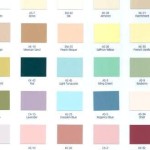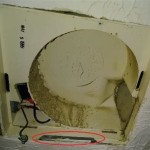Can You Tile Over Drywall in a Bathroom?
The process of tiling a bathroom often involves applying tiles directly to the drywall. This method, while seemingly straightforward, raises concerns about its practicality and durability. The question of whether you can tile over drywall in a bathroom requires careful consideration of factors like moisture resistance, structural integrity, and the specific type of drywall used.
Challenges of Tiling Over Drywall
Drywall, commonly used for interior wall construction, is primarily designed for aesthetic purposes and does not inherently possess the qualities necessary for direct tiling in a bathroom environment. Bathrooms are inherently prone to moisture and humidity, posing significant challenges for drywall. The primary concerns associated with tiling over drywall in a bathroom include:
1. Moisture Resistance
Drywall is not inherently waterproof. While it may withstand occasional splashes, prolonged exposure to moisture can lead to a range of issues. Water can seep into the drywall, causing it to swell, warp, and potentially rot. This can ultimately affect the integrity of the tile installation and lead to unsightly bulges, cracks, or even detachment.
2. Structural Integrity
Drywall lacks the rigidity and strength required to support the weight of tile. This is particularly concerning in areas where heavy tiles or large format tiles are used. The weight of the tiles can strain the drywall, leading to cracks or even collapse. This can result in costly repairs and potential safety hazards.
3. Water Penetration
Even with proper sealing, water can find its way through grout lines or imperfections in the tile installation. This can lead to moisture trapped behind the tile, which can cause mold growth and damage the underlying drywall. Mold poses health risks and can compromise the structural integrity of the wall.
Considerations for Tiling Over Drywall
While tiling directly over drywall in a bathroom is generally not recommended, certain factors can influence the feasibility of this approach. It is crucial to consider:
1. Type of Drywall
Using moisture-resistant drywall (MR drywall) can mitigate some of the risks associated with tiling over drywall. MR drywall has a green paper face and is designed to resist moisture absorption. However, even MR drywall is not fully waterproof and should be used in conjunction with proper waterproofing measures.
2. Waterproofing Measures
Regardless of the type of drywall used, it is essential to implement robust waterproofing measures. This includes applying a water-resistant membrane, such as a moisture-proof barrier sheet or liquid membrane, to the drywall surface before tiling. The membrane acts as a shield, preventing water from reaching the underlying drywall.
3. Thinset Mortar
The type of thinset mortar used for tile installation plays a crucial role. A high-quality, modified thinset mortar specifically designed for use with tile over drywall is recommended. This type of mortar provides better adhesion and moisture resistance, ensuring a secure bond between the tile and the substrate.
Alternative Methods
While tiling over drywall can be attempted with careful planning and execution, it is often advisable to explore alternative methods that provide greater durability and moisture resistance. These include:
1. Tile Backer Board
Tile backer board, made from cement board or fiberglass reinforced cement board, is specifically designed for tile installations. It offers superior moisture resistance, strength, and rigidity compared to drywall. Backer board is installed over the drywall, providing a solid and stable substrate for the tiles.
2. Waterproof Membrane
Using a waterproof membrane, often referred to as a shower pan liner, is crucial for creating a moisture-proof barrier in areas prone to direct water contact, such as shower stalls or tub surrounds. This membrane is installed over the drywall and serves as a primary line of defense against water penetration.
Choosing the appropriate approach for tiling a bathroom depends on factors like the specific room layout, budget, and intended use. While tiling over drywall may be feasible in certain cases, utilizing alternative methods like backer board or membrane systems provides a more reliable and durable solution for a bathroom environment.

Tile Over Drywall Showers A Common But Bad Practice Scott Hall Remodeling

Can You Tile Over Drywall Is It Safe Home Efficiency Guide

Everything About Installing Tiles On Drywall

Can You Tile Over Drywall In A Shower Find Out Now Upgradedhome Com
What Happens If You Tile Over Drywall In A Shower Quora

Can You Tile Over Drywall Is It Safe Home Efficiency Guide

Everything About Installing Tiles On Drywall

Waterproof Bathtub Shower Walls Over Drywall

Everything About Installing Tiles On Drywall

The Tile Journal Of Hamilton In Woodstock Ga
Related Posts







